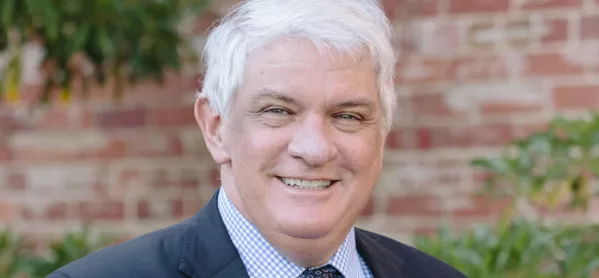When students are struggling, teachers want to find out why, so that they can help overcome the problems. They want to know how they can do better.
One of Australia’s most respected child psychologists Michael Carr-Gregg is often asked this question and for him, the answer is simple: good teachers do enough already.
The people who really need to up their game if we are to help young people are parents.
And he should know: Carr-Gregg has long been a loud and informed voice on the subject of student wellbeing.
The fact that young people are more stressed now is difficult to argue with, says Carr-Gregg.
“Australian research indicates quite clearly that this generation is not coping,” he explains. “Rates of depression and anxiety in both primary and secondary school students are at an all-time high.”
Teachers are feeling pressure to get students ready for tests, parents are feeling pressure to have their children perform above average. This pressure then travels all the way down onto the kids themselves, he explains.
The author of nine books, Carr-Gregg says mental health issues are coming to the forefront of children’s growing-up phase with a rise in suicidal behaviours and deliberate self-harm.
What children and young people who experience problems need, he explains, is to feel safe, valued and listened to.
“They crave closeness and comfort; finding security in a routine and non-conditional acceptance,” Carr-Gregg says.
Parents hold the key
While teachers are important in this security process, he believes that the main focus in tackling the teenage mental health crisis should be on parents.
“I think the biggest change has been in parenting: the tail seems increasingly to be wagging the dog. I see that now more often than ever before.
“More and more children seem to be in charge of their own lives, more worried about pleasing their friends than listening to or respecting their parents. Their wish lists become “must have” or “must do” lists, because to deprive a child of an iPad, let alone make them attend a “boring” family function, religious or carol service, is seen by many as akin to cruelty, neglect and abuse.
“While it is counterproductive for parents to be in the faces of their children 24/7, it is vital that they are supportive, make them feel safe, valued and trusted and, above all, that they know where they are, who they are with and what they are doing. They need boundaries and rules if they are to learn right from wrong.”
Essentially, the key to tackling the teenage mental health crisis is not asking schools to do more - rather, it is asking parents to become more like schools.
Brittany Vonow is a freelance writer based in London
@bvonow
Michael Carr-Gregg is a child and adolescent psychologist, managing director of The Young and Well Cooperative Research centre, and a parenting expert on Australia’s Sunrise television programme. He is the author of nine books on mental health, including Australian bestseller The Princess Bitchface Syndrome.
This is an edited version of a feature in the 16 September issue of TES. Subscribers can read the full story here. To subscribe, click here. To download the digital edition, Android users can click here and iOS users can click here. The magazine is also available in all good newsagents.
Want to keep up with the latest education news and opinion? Follow TES on Twitter and like TES on Facebook




